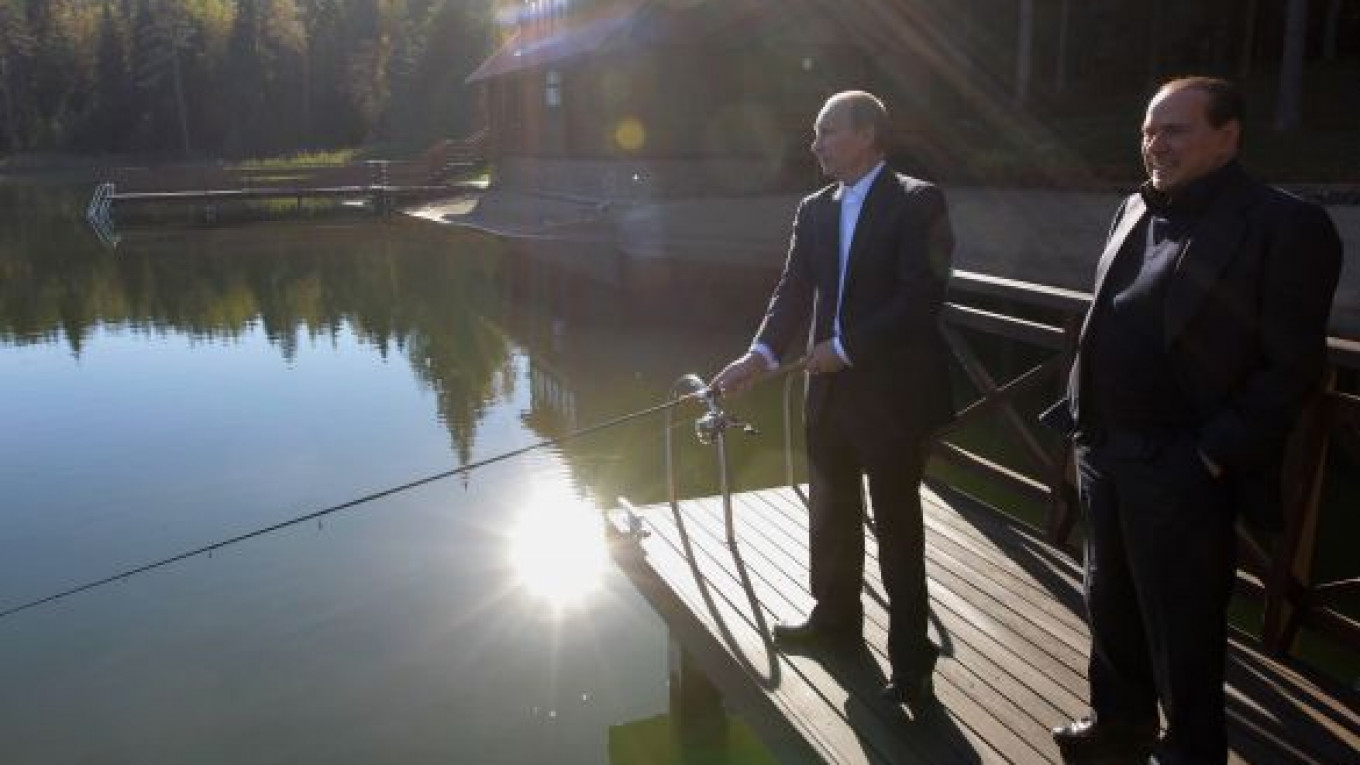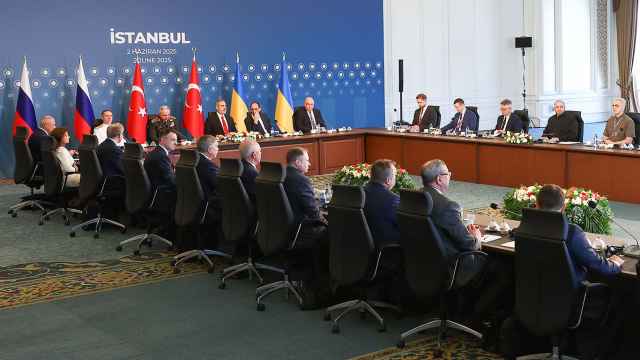Prime Minister Vladimir Putin said Friday that German companies were now considering joining South Stream and that a number of new European firms were showing "great interest" in entering the gas pipeline project.
Putin repeated the statement about German participation during a meeting Saturday with Italian Prime Minister Silvio Berlusconi in St. Petersburg. The Italian leader responded that having a "certain German company" join the project would be a "positive contribution," according to his translated comments on the Russian government's web site.
The 20 billion euro ($27.8 billion) South Stream project is run by Gazprom and Italy's Eni. In June, Russia signed a memorandum of understanding giving France's EDF a minimum 10 percent stake in the project, to be taken from the Italian share.
The comments came just days after leading German oil and gas producer Wintershall, a unit of chemical concern BASF, downplayed rumors of its possible participation in South Stream, which will transport Russian gas to Europe via Bulgaria starting at the end of 2015.
Eni CEO Paolo Scaroni said last week that he thought Wintershall was considering entering South Stream, renewing a tide of speculation. He added, however, that he had not been in touch with the company.
“I know that some major European companies — which were not part of the project earlier — are already showing great interest toward it,” Putin told Gazprom chief Alexei Miller on Friday, according to the transcript published on the government web site.
“And if this happens, if they enter this project, then it will really — in the true sense of the word — become international, pan-European. We already have Italian … [and] French companies there, and now the German ones are starting to show interest,” Putin said.
Wintershall's focus is on "expanding our upstream activities in our core region Russia," spokesman Stefan Leunig said Friday in an e-mailed statement to The Moscow Times.
"In addition to production at the source, we are also involved in the construction of infrastructure projects such as the Nord Stream pipeline, its connecting pipelines OPAL and NEL, as well as the construction of natural gas storage facilities in Europe. However, there are no concrete projects at the current time,” he said.
The German company has repeatedly denied rumors about its possible participation in South Stream, but analysts believe that there has to be a grain of truth to the persistent speculation.
“Where there's smoke, there's fire,” Valery Nesterov, an oil and gas analyst at Troika Dialog, told The Moscow Times. Talks about potential new participants have been up in the air for the past six months, he said.
“There are different kinds of perceptions. [With this project] there is a strong desire to indulge in wishful thinking. There is a very complicated battle of interests in the region,” Nesterov said, referring to the Nabucco gas pipeline project, considered South Stream's main rival.
The Turkey-Austria pipeline is to be operational in 2015 and is aimed at cutting Europe's reliance on Russian gas, but an Austrian newspaper reported Friday that a final decision to invest in Nabucco would be pushed back to next year over difficulties in securing supplies for the project.
Nabucco declined to comment on whether new participants in South Stream would affect its plans.
“We are fully focusing on the realization of our project, and it is progressing well,” Nabucco spokesman Christian Dolezal told The Moscow Times on Friday.
“We are currently finalizing the detailed engineering, started the environmental and social impact assessments and started the appraisal process. … The shareholders are currently negotiating gas supply contracts,” he added.
A Gazprom spokesman could not be reached for comment Friday to specify which companies had shown interest in South Stream.
A Message from The Moscow Times:
Dear readers,
We are facing unprecedented challenges. Russia's Prosecutor General's Office has designated The Moscow Times as an "undesirable" organization, criminalizing our work and putting our staff at risk of prosecution. This follows our earlier unjust labeling as a "foreign agent."
These actions are direct attempts to silence independent journalism in Russia. The authorities claim our work "discredits the decisions of the Russian leadership." We see things differently: we strive to provide accurate, unbiased reporting on Russia.
We, the journalists of The Moscow Times, refuse to be silenced. But to continue our work, we need your help.
Your support, no matter how small, makes a world of difference. If you can, please support us monthly starting from just $2. It's quick to set up, and every contribution makes a significant impact.
By supporting The Moscow Times, you're defending open, independent journalism in the face of repression. Thank you for standing with us.
Remind me later.






